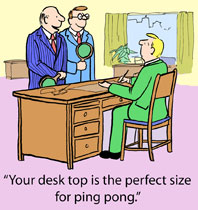 Imagine the sound of a ping pong ball falling on a hard surface. It bounces, bounces, bounces some more, and faster as it bounces away, and then bounces again, and then stops until someone picks it up and either bounces it again, or puts it in play. The phrase, “We need to…” is like that. You can insert whatever ending you like. It might be, “We need to get the roof repaired.” “We need to change that policy.” “We need to ensure we mesh our cultures.” Now imagine a CEO making such a statement to the executive team. “We need to make sure that before this merger, our two companies understand each other’s culture,” for example. What happens next? Bounce, bounce, bounce.
Imagine the sound of a ping pong ball falling on a hard surface. It bounces, bounces, bounces some more, and faster as it bounces away, and then bounces again, and then stops until someone picks it up and either bounces it again, or puts it in play. The phrase, “We need to…” is like that. You can insert whatever ending you like. It might be, “We need to get the roof repaired.” “We need to change that policy.” “We need to ensure we mesh our cultures.” Now imagine a CEO making such a statement to the executive team. “We need to make sure that before this merger, our two companies understand each other’s culture,” for example. What happens next? Bounce, bounce, bounce.
Well that’s the question, isn’t it? When anyone makes such a statement what is the expectation? Is the one asking the question going to do it? Is the listener supposed to do the action? You know you’ve made such a statemen; and I’m sure you’ve heard it from someone.
 Diane Bogino is President of Performance Strategies, Inc., providing clarity, focus, and strategies for coaching clients, conducting in-depth analysis for teams and individual members, and developing and delivering customized training programs for real world business solutions. She is an in demand public speaker and the author of five books.
Diane Bogino is President of Performance Strategies, Inc., providing clarity, focus, and strategies for coaching clients, conducting in-depth analysis for teams and individual members, and developing and delivering customized training programs for real world business solutions. She is an in demand public speaker and the author of five books.
Diane has spoken for, coached, consulted, and provided training for:
the Centers for Disease Control (CDC), Coca-Cola, Emory University, United States Forestry Service, Sheraton Hotel, Elsevier, Renaissance Hotel, Israeli Consulate, Israeli Department of Defense, Penta Hotel, American Association Institute of Certified Public Accountants (AICPA), Pensacola State College, Opportunity Bank, American Association of Occupational Health Nurses (AAOHN), KH International, and many other organizations as well as individuals.
Diane is passionate about bringing tools, ideas, and strategies to help make your business and employees thrive. Through books, speeches, courses, and workshops, Dane is dedicated to helping you grow your capabilities and connections and getting you to that next level of success, no matter where you are in the process right now.
Affiliations and Certifications
- Masters in Industrial Organizational Psychology (I/O)
- Bachelor of Science in Psychology (BS)
- Registered Corporate Coach (RCC)
- Leaders Coaching Leaders Coach (LCL) and Facilitator
- Certified Professional Behavioral Analyst (CPBA) (DISC Certified)
- Certified Professional Driving Forces Analyst (CPDFA)
- Certified TriMetrix HD Analyst (CPHDA)
- Certified Professional Emotional Quotient Analyst (CPEQA)
- Certified Master Trainer and Instructional Designer/Developer
- National Speakers Association (National & Local) (Past President of Georgia Chapter)
- In a former life, Diane was an actress and model. She appeared in a movie and in numerous commercials and did a national spot for Delta airlines. She also did voice overs, print and runway modeling. At one time she was “Daffey Diane,” (some say she still is!), a magic clown. She also performed magic as herself winning Magician of the Year for Greater Atlanta.
Personal Note:Contact me today and let’s have a discussion of ideas on increasing success for you, your business, and your employees. Call 404-320-7834 or email This email address is being protected from spambots. You need JavaScript enabled to view it..
.
 Famed speaker and coach, Patricia Fripp, will often say, “When someone wants to give you their money, you take it!” There is also an old saying that goes, “Don’t look a gift horse in the mouth.” These phrases carry a similar message. The story of what brought the contemplation of these two phrases to mind follows.
Famed speaker and coach, Patricia Fripp, will often say, “When someone wants to give you their money, you take it!” There is also an old saying that goes, “Don’t look a gift horse in the mouth.” These phrases carry a similar message. The story of what brought the contemplation of these two phrases to mind follows.
Often when we entrepreneurs market, we will give products and services away for gifts at special events. Don’t we all just love these unexpected perks? It just so happens, that a colleague of mine, whom we’ll call Bill, spoke for an enterprise with around 15 employees. He provided one hour of complimentary coaching as one of these perks. Upon hearing him speak, several of the employees wanted to engage him in a coaching program. One of these was a person who had received a complimentary the one hour coaching perk. Bill faithfully delivered the one hour coaching and the employee told her boss, CEO of the enterprise, that it was the best hour she had ever spent.
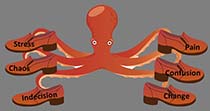 OK, granted, most any time can be unpredictable. However, these times it seems that shoes are dropping from the tentacles of every octopus on the planet and even though the octopus seems to enjoy a solitary life, more of them seem to be swimming around and bringing numerous shoes to drop. How can coaching be a tool for such a time as this?
OK, granted, most any time can be unpredictable. However, these times it seems that shoes are dropping from the tentacles of every octopus on the planet and even though the octopus seems to enjoy a solitary life, more of them seem to be swimming around and bringing numerous shoes to drop. How can coaching be a tool for such a time as this?
👮♂️ This week I facilitated a DSC debrief for a group at a local court here in Georgia. Getting beyond the scanner (thank goodness!) a police officer wanted to know my business there. Explaining I was doing a program for a judge, he offered to escort me, and I decided to accept. (I think that’s one of those offers you can’t refuse.) The officer asked if I wished to take the stairs or the elevator. I was carrying notebooks, a computer, various technical gear, give aways, and my 800-pound purse, so I wisely made the decision to take the elevator. Reaching the correct floor, he guided me through a maze of hallways, a door requiring a passcode, another maze of halls, and finally into the correct office. Yes! I made a good decision by allowing the officer to guide me.
DID YOU KNOW THAT THE FAILURE RATE FOR NEW MANAGERS IS *46%!?
Why was the First Time Managers Coaching Program Created?
As a former manager in human resources, witnessing the promotion of unqualified people to management was heartbreaking. And the failure rate was proving costly. As an executive coach, I can see these failures manifest when there is a lack of solid leadership training.
New managers rarely have the training they need, and certainly don’t have any of the experience an executive possesses. Indeed, most new managers are promoted primarily because they are doing a good job in their current position. That doesn’t necessarily make them management material.
The executive staff are the people who get the resources such as training, off-site retreats, and coaching. Of course, it is a good idea to put resources behind the executive staff because, after all, they are carrying a lot of risks for the success of the organization.
But think about this. New managers are the people who could one day fill the shoes of an executive in your organization. I dare say that any executive you speak with wishes he or she had more “care and feeding” about how to manage and lead as they started up and continued to climb the ladder into the executive suite.
That’s why I’ve created a coaching program specifically designed for managers with zero to three years’ experience. This program is affordable, so the organization can not only justify, but recoup the investment, and reap benefits the company will profit from for years to come.
Schedule an Appointment
How does the First Time Managers Program Work?
The new manager takes the TriMetrix HD Assessment, and receives a report consisting of:
- Behaviors:
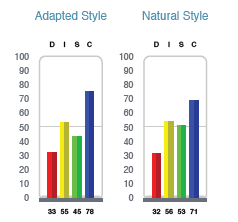
Behavioral research suggests that the most effective people are those who understand themselves, both their strengths and weaknesses, so they can develop strategies to meet the demands of their environment. This report measures the four dimensions of normal behavior: dominance, influence, steadiness, and compliance.
TriMetrix HD tells how the new manager will perform.
*Source: HR.com
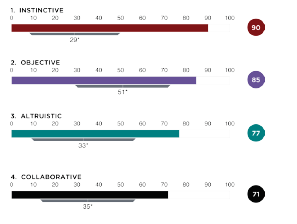 Knowledge of an individual’s driving forces helps tell us why a person behaves a certain way. 12 Driving Forces ™ measures an individual’s top four of driving forces to tell a story of how a person derives meaning from life and work.
Knowledge of an individual’s driving forces helps tell us why a person behaves a certain way. 12 Driving Forces ™ measures an individual’s top four of driving forces to tell a story of how a person derives meaning from life and work.
TriMetrix HD illuminates what drives this individual’s behavior – the why behind their actions.
- Competencies:
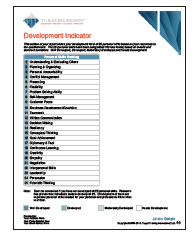
An individual’s hierarchy of competencies, including his/her leadership score, is key to their success. Knowing what they are is essential to reaching one’s goals. This report is designed to assist managing and developing a career. For many jobs, personal skills are as important as technical skills in producing superior performance.
TriMetrix HD describes what this individual “has done” in 25 research-based competencies related to the business environment.
Acumen Capacity Index:
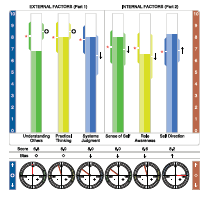
The Acumen Indicators section is designed to help individuals truly understand themselves and how they analyze and interpret their experiences. A person’s acumen, keenness, and depth of perception or discernment is directly related to performance.
TriMetrix ACI explores both how a person’s judgment impacts interaction with the external world, and his or her own self-perception.
In addition, the assessment reports contain self-coaching strategies that will guide the new manager beyond the coaching initiatives of this program.
Schedule an Appointment
Program Structure
Online assessment administration
3 months or 12 hours of coaching (Bonus: 1 extra hour at no charge in the first session!)
Unlimited access to the coach via phone and email during the coaching program
The Program is Designed To:- Increase clarity, focus, and direction
- Create a specific strategy and a plan to reach goals
- Build or enhance necessary skills
- Create a supportive environment to achieve success
- Deal with barriers that block goal achievement
Coaching Topics Include, but Are Not Limited To:
- Leadership myths and magic
- Understanding roles and responsibilities
- Critical/strategic thinking
- Handling relationships (former peers and supervisor)
- Understanding your team’s history
- Understanding performance management
- Communication
- Problem analysis and decision making (including making hard decisions)
- Creating a culture of accountability
- Motivating your team
- Coaching
- Evaluating your team
- Continuous learning and trends
Why am I Qualified to Coach?
- Ten years of coaching executives from a variety of industries across the United States and from Israel, Chile, South America, Japan, Germany, China, and Sweden.
- Certifications include: Registered Corporate Coach (RCC), Leaders Coaching Leaders Coach (LCL) and Facilitator, Certified Professional Driving Forces Analyst (CPDFA); (CPBA); (DISC Certified); Certified TriMetrix HD Analyst (CPHDA), and Certified Professional Emotional Quotient Analyst (CPEQA)
- Formal education includes a Masters of Arts in Industrial Organizational Psychology and a Bachelor of Science in Psychology
- Six years as a Human Resource Manager
Bonus I:
One complimentary extra hour of coaching in the first session, for a total of 14 hours of coaching.
Bonus II:
Diane’s eBook, How to Give Dull, Boring Meetings a Swift Kick in the Agenda. This book provides the new manager with insights on:
- How to manage different behavioral styles in meetings
- How to determine if a meeting is necessary
- Types of meetings
- How to have more effective meetings
- Ways to make meetings fun!
Bonus III:
A complimentary “check-in” call 3 months after our final session to help ensure the new manager is still on track. This brings the total number of coaching hours to 15!!
Let's get started to give your managers the leadership foundation they need to make it all the way to the Executive Suite!
 Many of you will recognize these lyrics from the 1969 tune No Time by The Guess Who. Not having time for coaching is a message that continues to drone on by both managers who should be conducting it and individuals who should be engaging in it. However, we seem to be able to make time for low productivity, employee disengagement, failure to set goals, a lack of innovation…well I could drone on and on too.
Many of you will recognize these lyrics from the 1969 tune No Time by The Guess Who. Not having time for coaching is a message that continues to drone on by both managers who should be conducting it and individuals who should be engaging in it. However, we seem to be able to make time for low productivity, employee disengagement, failure to set goals, a lack of innovation…well I could drone on and on too.
The idea of having no time for coaching lingers despite the plethora of books, articles, scientific and case studies available touting the effectiveness of coaching. Nothing is a miracle cure all, but there are two ingredients necessary to facilitate the success of a coaching program, a good coach and the willingness of the person engaging in coaching to be coachable.
 The title is taking license with the real phrase, “necessity is the mother of invention.” We are not big on guests and frankly have turned our guest room into an office/studio. But recently we had a visitor to stay a couple of nights and the only thing we have resembling a bed is a single size air mattress. The guest is not a nimble young person, and I knew I needed to get the mattress off the floor a bit. My imagination went into overdrive.
The title is taking license with the real phrase, “necessity is the mother of invention.” We are not big on guests and frankly have turned our guest room into an office/studio. But recently we had a visitor to stay a couple of nights and the only thing we have resembling a bed is a single size air mattress. The guest is not a nimble young person, and I knew I needed to get the mattress off the floor a bit. My imagination went into overdrive.
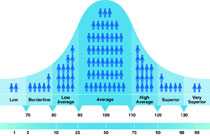 Once I had a boss who said there are three types of employees, the work horses, the non-consistent employee (these are the ones who on any given day, may perform well one day and poorly the next – it’s a toss of the coin), and finally there are the dead wood employees.
Once I had a boss who said there are three types of employees, the work horses, the non-consistent employee (these are the ones who on any given day, may perform well one day and poorly the next – it’s a toss of the coin), and finally there are the dead wood employees.
As you can see from the bell curve, high-performing employees are to the right of center and low performers are to the left of center. Average performers are in the middle. New hires would be designated as average as they typically take more of the manager’s time and energy. We know that our energy is a valuable resource. Therefore, the question to ask is: “Where do managers typically spend their time and energy?” We should be focusing our energy where it can produce
the greatest value. Coaching average to low performing employees is not the place to expend such a valuable resource. Spending energy coaching the top 40% to 50% provides the greatest return. For average performing employees, mentoring, guiding, and some coaching is the way to go. Poor or low performers need supervising. Further, coaching the top performers elicits three valuable ROIs:
 There are several reasons to evaluate the validity and ROI of a coaching program.
There are several reasons to evaluate the validity and ROI of a coaching program.
- Fiscal responsibility. Coaching comes at a price of not only money, but time and energy. All have a cost to the bottom line.
- Coming off a tight economy that has not fully recovered. Therefore closer scrutiny and tougher decisions are in order.
- Since, as this paper mentions, coaching is still beset with doubters, it is essential to prove the effectiveness of coaching to the bottom line.
- It is imperative to distinguish effective from non-effective coaching
Bearing these essentials in mind, there are many variables and items to measure and these variables are not always numeric. In addition, many coaching experts suggest that only about 5% of coaching programs should be measured in terms of ROI. Further, no two coaching assignments are the same and no two coaches approach coaching from the same perspective. Nevertheless, it is important to review effectiveness and quantify impact of coaching. Ways to help measure coaching consist of evaluating some of the following:

Since I do coaching, this topic is of immense interest to me and how I serve my clients. But it should be of interest to every executive and manager who seeks to achieve goals, improve performance, build relationships, and excel at leadership.
Don’t get the idea that I’m going to tell you that coaching is the silver bullet you need to solve all your problems as well as the problems of your executive team and managerial staff. Unfortunately, the Lone Ranger was the only one with silver bullets. Sorry, Kemosabe. However, because coaching is a relatively new tool in the scheme of things, research on its effectiveness has been at best sketchy and some of it downright bad. Of course, every study has its flaws and recommendations for the next study team to do things differently, better, bigger, or in more detail. The information for this blog post is drawn from three studies, listed at the end of this article along with apologies to AMA rules and guidelines.
 Both individual and team coaching enjoy a rich history. Despite its widespread popularity, coaching remains an enigma for leaders. Despite its effectiveness for many, leaders remain hesitant to implement this tool. Further, adding to the confusion, even though many individuals and teams report an improvement in productivity, focus, and even life-changing breakthroughs, there are a lack of studies to help support these important claims. What’s the difference between team and individual coaching? How does a leader determine whether to implement individual or team coaching? In addition, how does a leader know if any coaching is worth the ROI?
Both individual and team coaching enjoy a rich history. Despite its widespread popularity, coaching remains an enigma for leaders. Despite its effectiveness for many, leaders remain hesitant to implement this tool. Further, adding to the confusion, even though many individuals and teams report an improvement in productivity, focus, and even life-changing breakthroughs, there are a lack of studies to help support these important claims. What’s the difference between team and individual coaching? How does a leader determine whether to implement individual or team coaching? In addition, how does a leader know if any coaching is worth the ROI?
 The sales process is changing from one of being process driven to one of relying on the insight and judgment of the sales representative. Why is this? Today’s customers can now find their own information about products, pricing, quality, and service levels for any industry or product. In other words, the customer is relying less on the sales person to “sell” them on the benefits of goods and services. More than likely, the customer has already sold themselves before they ever enter a store, showroom or sales event. Therefore, the sales professional requires less adherence to protocols, inspection, direction, and structure. What is needed is more guidance and support from managers. This fact alone demands a coaching platform. There are, however, considerations to examine.
The sales process is changing from one of being process driven to one of relying on the insight and judgment of the sales representative. Why is this? Today’s customers can now find their own information about products, pricing, quality, and service levels for any industry or product. In other words, the customer is relying less on the sales person to “sell” them on the benefits of goods and services. More than likely, the customer has already sold themselves before they ever enter a store, showroom or sales event. Therefore, the sales professional requires less adherence to protocols, inspection, direction, and structure. What is needed is more guidance and support from managers. This fact alone demands a coaching platform. There are, however, considerations to examine.
Many managers lack coaching skills. Outside coaches can be brought in to achieve the task and this works well as a successful coaching relationship does not require years of having an established relationship, but rather trust is the key. Once trust is established and the coach and coachee feel they work well together, then great progress is achievable. In addition, it is wise to be sure a coach has good credentials.
 Life is like attending school every day. In other words, while living both our professional and personal lives, we learn continuously. Yes, there are extremes at both ends of the learning spectrum. There are those so busy learning new theories that they forget to learn the common sense lessons in life, like how to come in out of the rain. Then there are those who think they already know everything and refuse to learn anything new. As with everything, there needs to be balance. Businesses can create learning cultures with balance for both the employee and the organization. How and why do they do that?
Life is like attending school every day. In other words, while living both our professional and personal lives, we learn continuously. Yes, there are extremes at both ends of the learning spectrum. There are those so busy learning new theories that they forget to learn the common sense lessons in life, like how to come in out of the rain. Then there are those who think they already know everything and refuse to learn anything new. As with everything, there needs to be balance. Businesses can create learning cultures with balance for both the employee and the organization. How and why do they do that?
 Most days you simply need to look at our politicians, no matter what party you support, to see what a team is not. A group of ego centric, I am the expert, opinionated, we want everything our way, it is us vs them people is not a team. It is a group of people who create chaos, are non-productive, are in a constant state of conflict, and reside in the state of stalemate. Where is the accountability?
Most days you simply need to look at our politicians, no matter what party you support, to see what a team is not. A group of ego centric, I am the expert, opinionated, we want everything our way, it is us vs them people is not a team. It is a group of people who create chaos, are non-productive, are in a constant state of conflict, and reside in the state of stalemate. Where is the accountability?
 Imagine the sound of a ping pong ball falling on a hard surface. It bounces, bounces, bounces some more, and faster as it bounces away, and then bounces again, and then stops until someone picks it up and either bounces it again, or puts it in play. The phrase, “We need to…” is like that. You can insert whatever ending you like. It might be, “We need to get the roof repaired.” “We need to change that policy.” “We need to ensure we mesh our cultures.” Now imagine a CEO making such a statement to the executive team. “We need to make sure that before this merger, our two companies understand each other’s culture,” for example. What happens next? Bounce, bounce, bounce.
Imagine the sound of a ping pong ball falling on a hard surface. It bounces, bounces, bounces some more, and faster as it bounces away, and then bounces again, and then stops until someone picks it up and either bounces it again, or puts it in play. The phrase, “We need to…” is like that. You can insert whatever ending you like. It might be, “We need to get the roof repaired.” “We need to change that policy.” “We need to ensure we mesh our cultures.” Now imagine a CEO making such a statement to the executive team. “We need to make sure that before this merger, our two companies understand each other’s culture,” for example. What happens next? Bounce, bounce, bounce. Diane Bogino is President of Performance Strategies, Inc., providing clarity, focus, and strategies for coaching clients, conducting in-depth analysis for teams and individual members, and developing and delivering customized training programs for real world business solutions. She is an in demand public speaker and the author of five books.
Diane Bogino is President of Performance Strategies, Inc., providing clarity, focus, and strategies for coaching clients, conducting in-depth analysis for teams and individual members, and developing and delivering customized training programs for real world business solutions. She is an in demand public speaker and the author of five books.



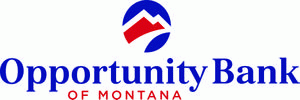



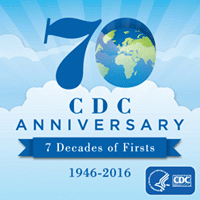
 Famed speaker and coach,
Famed speaker and coach,  OK, granted, most any time can be unpredictable. However, these times it seems that shoes are dropping from the tentacles of every octopus on the planet and even though the octopus seems to enjoy a solitary life, more of them seem to be swimming around and bringing numerous shoes to drop. How can coaching be a tool for such a time as this?
OK, granted, most any time can be unpredictable. However, these times it seems that shoes are dropping from the tentacles of every octopus on the planet and even though the octopus seems to enjoy a solitary life, more of them seem to be swimming around and bringing numerous shoes to drop. How can coaching be a tool for such a time as this?
 Knowledge of an individual’s driving forces helps tell us why a person behaves a certain way. 12 Driving Forces ™ measures an individual’s top four of driving forces to tell a story of how a person derives meaning from life and work.
Knowledge of an individual’s driving forces helps tell us why a person behaves a certain way. 12 Driving Forces ™ measures an individual’s top four of driving forces to tell a story of how a person derives meaning from life and work.

 Many of you will recognize these lyrics from the 1969 tune No Time by The Guess Who. Not having time for coaching is a message that continues to drone on by both managers who should be conducting it and individuals who should be engaging in it. However, we seem to be able to make time for low productivity, employee disengagement, failure to set goals, a lack of innovation…well I could drone on and on too.
Many of you will recognize these lyrics from the 1969 tune No Time by The Guess Who. Not having time for coaching is a message that continues to drone on by both managers who should be conducting it and individuals who should be engaging in it. However, we seem to be able to make time for low productivity, employee disengagement, failure to set goals, a lack of innovation…well I could drone on and on too. The title is taking license with the real phrase, “necessity is the mother of invention.” We are not big on guests and frankly have turned our guest room into an office/studio. But recently we had a visitor to stay a couple of nights and the only thing we have resembling a bed is a single size air mattress. The guest is not a nimble young person, and I knew I needed to get the mattress off the floor a bit. My imagination went into overdrive.
The title is taking license with the real phrase, “necessity is the mother of invention.” We are not big on guests and frankly have turned our guest room into an office/studio. But recently we had a visitor to stay a couple of nights and the only thing we have resembling a bed is a single size air mattress. The guest is not a nimble young person, and I knew I needed to get the mattress off the floor a bit. My imagination went into overdrive. Once I had a boss who said there are three types of employees, the work horses, the non-consistent employee (these are the ones who on any given day, may perform well one day and poorly the next – it’s a toss of the coin), and finally there are the dead wood employees.
Once I had a boss who said there are three types of employees, the work horses, the non-consistent employee (these are the ones who on any given day, may perform well one day and poorly the next – it’s a toss of the coin), and finally there are the dead wood employees. There are several reasons to evaluate the validity and ROI of a coaching program.
There are several reasons to evaluate the validity and ROI of a coaching program.
 Both individual and team coaching enjoy a rich history. Despite its widespread popularity, coaching remains an enigma for leaders. Despite its effectiveness for many, leaders remain hesitant to implement this tool. Further, adding to the confusion, even though many individuals and teams report an improvement in productivity, focus, and even life-changing breakthroughs, there are a lack of studies to help support these important claims. What’s the difference between team and individual coaching? How does a leader determine whether to implement individual or team coaching? In addition, how does a leader know if any coaching is worth the ROI?
Both individual and team coaching enjoy a rich history. Despite its widespread popularity, coaching remains an enigma for leaders. Despite its effectiveness for many, leaders remain hesitant to implement this tool. Further, adding to the confusion, even though many individuals and teams report an improvement in productivity, focus, and even life-changing breakthroughs, there are a lack of studies to help support these important claims. What’s the difference between team and individual coaching? How does a leader determine whether to implement individual or team coaching? In addition, how does a leader know if any coaching is worth the ROI? The sales process is changing from one of being process driven to one of relying on the insight and judgment of the sales representative. Why is this? Today’s customers can now find their own information about products, pricing, quality, and service levels for any industry or product. In other words, the customer is relying less on the sales person to “sell” them on the benefits of goods and services. More than likely, the customer has already sold themselves before they ever enter a store, showroom or sales event. Therefore, the sales professional requires less adherence to protocols, inspection, direction, and structure. What is needed is more guidance and support from managers. This fact alone demands a coaching platform. There are, however, considerations to examine.
The sales process is changing from one of being process driven to one of relying on the insight and judgment of the sales representative. Why is this? Today’s customers can now find their own information about products, pricing, quality, and service levels for any industry or product. In other words, the customer is relying less on the sales person to “sell” them on the benefits of goods and services. More than likely, the customer has already sold themselves before they ever enter a store, showroom or sales event. Therefore, the sales professional requires less adherence to protocols, inspection, direction, and structure. What is needed is more guidance and support from managers. This fact alone demands a coaching platform. There are, however, considerations to examine. Life is like attending school every day. In other words, while living both our professional and personal lives, we learn continuously. Yes, there are extremes at both ends of the learning spectrum. There are those so busy learning new theories that they forget to learn the common sense lessons in life, like how to come in out of the rain. Then there are those who think they already know everything and refuse to learn anything new. As with everything, there needs to be balance. Businesses can create learning cultures with balance for both the employee and the organization. How and why do they do that?
Life is like attending school every day. In other words, while living both our professional and personal lives, we learn continuously. Yes, there are extremes at both ends of the learning spectrum. There are those so busy learning new theories that they forget to learn the common sense lessons in life, like how to come in out of the rain. Then there are those who think they already know everything and refuse to learn anything new. As with everything, there needs to be balance. Businesses can create learning cultures with balance for both the employee and the organization. How and why do they do that? Most days you simply need to look at our politicians, no matter what party you support, to see what a team is not. A group of ego centric, I am the expert, opinionated, we want everything our way, it is us vs them people is not a team. It is a group of people who create chaos, are non-productive, are in a constant state of conflict, and reside in the state of stalemate. Where is the accountability?
Most days you simply need to look at our politicians, no matter what party you support, to see what a team is not. A group of ego centric, I am the expert, opinionated, we want everything our way, it is us vs them people is not a team. It is a group of people who create chaos, are non-productive, are in a constant state of conflict, and reside in the state of stalemate. Where is the accountability?